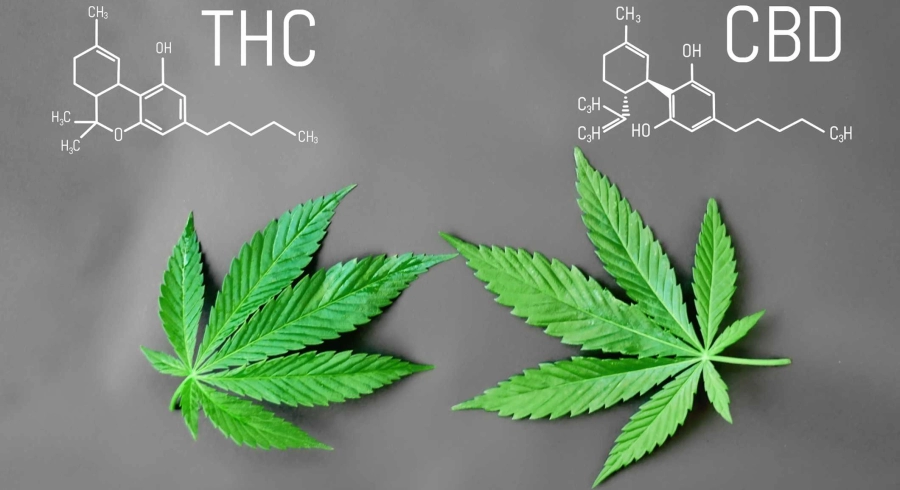CBD and THC, what’s the difference?

If a hemp plant contains more than 0.2% THC, this is enough for it to be considered illegal in France. CBD, on the other hand, is permitted. What is the difference between THC and CBD, two substances that are both naturally present in cannabis in different amounts? Explanations.
Similarities between THC and CBD
CBD and THC are both part of the large cannabinoid family, which includes hundreds of different compounds that give each variety of hemp its own unique characteristics. Cannabinoids act on the human body by interacting with certain receptors belonging to the so-called endocannabinoid system.
These receptors are spread throughout the body, in the nervous system as well as in the immune and digestive systems. This great distribution partly explains the wide range of effects that cannabinoids have on the body. They are still poorly understood and are the subject of a lot of research.
Another similarity between CBD and THC is that their chemical composition is identical: 30 hydrogen atoms, 21 carbon atoms and 2 oxygen atoms. The similarities between the two compounds end there. THC and CBD atoms have different spatial arrangements. This difference, however small it may seem, is the reason for the differences between the two substances. THC and CBD will not bind to the same receptors in the body and will therefore have very different effects.
THC, a psychoactive substance
THC is undoubtedly the most well-known compound in cannabis. This is the active substance that causes the psychotropic effect associated with hemp. THC, which binds preferentially to receptors in the brain, changes the user’s state of consciousness. Thanks to this compound, consuming cannabis "gets you high".
The downside is that THC is addictive and has a negative impact on the body. It can also cause "bad trips", anxiety attacks that can be very difficult to endure. Due to these characteristics, THC is considered a drug in most countries. In France, hemp varieties with a THC concentration over 0.2% are classified as psychotropic substances which are banned from being cultivated, sold and consumed.
The benefits of CBD
Although CBD, the other well-known cannabinoid in hemp, also has an effect on the body, it is very different from the effects of THC. CBD preferentially binds to endocannabinoid receptors in the body, particularly those involved in stress management and immunity. Therefore, CBD has numerous fields of application, many of which have still not been fully explored.
There is a lot of ongoing research to help better understand the effects of CBD and to develop protocols for its use in medicine. Initial studies have demonstrated the pain-relieving and anti-inflammatory properties of this cannabinoid. It could thus be used in the treatment of autoimmune diseases or to relieve certain pains, such as those linked to neuropathies. Consumers of CBD oils, e-liquids or flowers take this compound on a daily basis due to its relaxing effects, both on the mind and on sore muscles, after sports activities for example.
One of the great things about CBD is that it has no side effects and it is not addictive. In certain doses, CBD could also alleviate the negative effects of THC, including the famous "bad trips", by calming the nervous system. So, CBD is a natural compound with a great future!

Leave a comment